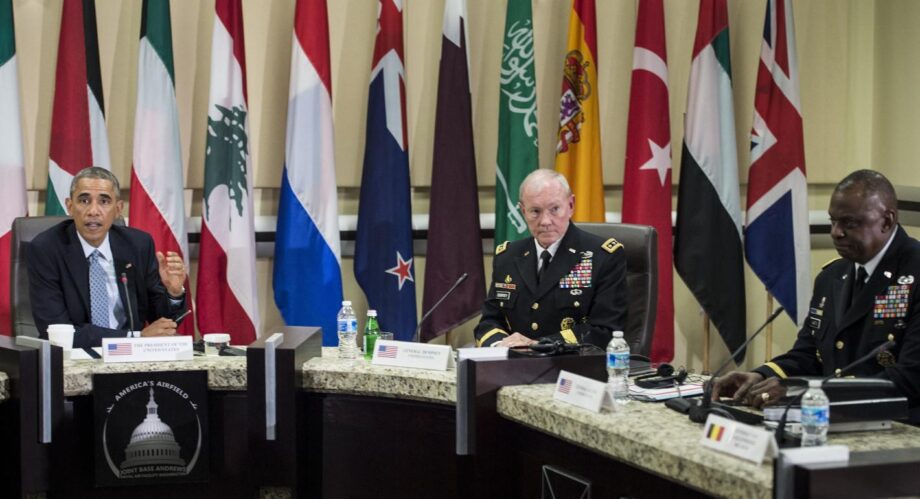Overview
A growing number of scholars in the field of international relations are recognizing the connection between race and foreign policy. It has been well-documented that global events such as the Cold War influenced policymakers in the United States to address issues of segregation and disenfranchisement, and African Americans considered these race relations when evaluating U.S. foreign policy priorities. The views on race relations within the United States have been shown to influence African Americans’ opinions on specific foreign policy goals. For example, those who perceive race relations as positive are more inclined to support U.S. involvement in global initiatives, while those with negative perceptions are slightly more likely to favor U.S. leadership on collective action issues.
Research Method
The data discussed were obtained from an original online survey of 1,000 individuals of African descent, including African Americans, Afro-Caribbeans, and continental Africans living in the United States who identify as Black or African American. The survey was developed by scholars at the Carnegie Endowment for International Peace and carried out by the polling firm YouGov between May 2 and 10, 2023.
YouGov recruited participants from its panel of close to 2 million U.S. residents, with only Black individuals aged eighteen and above living in the United States being eligible for the survey. The survey employed a sample-matching technique to ensure representativeness within the African American community, and sampling weights were used in the analyses to maintain representativeness. The sample’s overall margin of error is +/- 3 percent at the 95 percent confidence level.
Advantages and Limitations
The use of a wide survey panel, like the one maintained by YouGov, allowed for reliable estimates about relatively small populations of interest. However, online surveys have limitations as the wording of questions can influence respondents’ interpretation and responses. Nevertheless, this survey provides important insights into African Americans’ perspectives on U.S. foreign policy in the twenty-first century.
Race and African American Views on U.S. Foreign Policy
Research from the Carnegie American Statecraft Program indicates that racial issues remain a significant concern for African Americans. The survey revealed that racism and racial discrimination are top priorities for African American voters, alongside economic well-being. Therefore, it is important to consider African American opinions on U.S. foreign policy goals in the context of domestic race relations, as well as factors such as age, income, and education.
The survey asked respondents to rate their opinions on race relations on a four-point scale from very good to very bad. The majority (59 percent) expressed that race relations in the United States were somewhat or very bad, while 41 percent felt they were good. These findings correspond with a 2019 Pew Research Center poll showing that a majority of African Americans (71 percent) believed race relations in the United States were generally bad, with African Americans being more likely than other racial groups to hold this view.

The survey also revealed differences based on ethnic heritage, with individuals identifying as Black Americans showing the strongest belief that race relations were bad compared to other groups. For instance, 61 percent of Black Americans in the sample considered race relations to be bad, while the percentage was lower for those of recent foreign ancestry. The survey did not yield a significant enough sample of Afro-Latino respondents to draw conclusive insights.
Previous studies have explored the potential impact of race on African American international relations preferences and provide valuable context for this research.
The article discusses the varied experiences of Black people from different ethnic backgrounds in the United States. It explores how generational African Americans and more recent Black immigrants perceive race relations and their views on foreign policy.
The research indicates that generational African Americans tend to perceive race relations as being slightly worse compared to more recent Black immigrants. The study also reveals that those who believe race relations are generally bad are more in favor of the United States taking the lead on certain global issues such as preventing the spread of nuclear weapons and limiting climate change.
There is consensus among both groups, with regard to the United States taking the lead on preventing the spread of nuclear weapons and limiting climate change. However, there is a difference in opinion when it comes to promoting human rights and democracy globally, with Black Americans showing higher levels of support compared to Black people of immigrant backgrounds.
The article also discusses the historical involvement of African Americans in advocating for racial equality and justice globally. It highlights how African American activists have been concerned about issues such as nuclear weapons, human rights, and democracy, seeing them as interconnected with the fight for civil rights and decolonization.
Additionally, the article points out that African Americans may believe that climate change will disproportionately impact their communities, which could explain their support for the United States taking the lead on addressing climate change.
The article concludes by highlighting the differences in support for the United States taking a leading role in coordinating an international response to China’s rise and providing assistance to Ukraine between Black Americans and Black people of more recent foreign ancestry. It notes that Black Americans exhibited lower support for the United States taking the lead in these areas compared to Black people of more recent foreign ancestry.Research has found that 45 percent of Black Americans with a foreign background believe that the United States should work with other nations to address China’s growing influence, and 39 percent think the United States should offer help to Ukraine. This aligns with previous studies showing that Black Americans with deep roots in the United States are less supportive of using military force overseas compared to more recent Black immigrants.
Interestingly, among both groups, individuals who perceive race relations in the United States as negative are significantly less likely to support the United States taking the lead on global geopolitical issues. For instance, among those who view race relations as positive, 43 percent support coordinating an international response to China’s rise, while only 28 percent of those with a negative view on race relations support the same initiative.
Studies have also indicated that racial discrimination has caused African Americans to have lower levels of trust in U.S. institutions compared to other racial groups. Furthermore, some African Americans may be hesitant to support U.S. military involvement abroad, considering their disproportionate representation in the armed forces and the historical impact of combat casualties on the Black community.
Moreover, different perspectives on overseas military interventions along racial lines have long challenged policymakers. It is crucial for policymakers to recognize that the African American community is diverse in its thoughts on foreign policy matters, including the use of force abroad and global power competition. In addition to factors such as education, income, and ethnic background, perceptions of social justice and equality domestically also shape views on foreign policy attitudes.
In conclusion, historical events, such as the public opposition to the Vietnam War by organizations like the Student Nonviolent Coordinating Committee (SNCC), highlight the deep connection between racial equality and African Americans’ stance on U.S. foreign policies. Considering the persistent racial issues in society, it’s evident that domestic matters influence how many African Americans perceive the United States’ role in global initiatives.
A significant portion of African Americans supports the United States taking a leadership role globally but seeks a different approach, prioritizing issues other than armed conflict and challenging the traditional world order. As the White House seeks to communicate its policies to the American people, it’s important to acknowledge these nuances in African Americans’ perspectives on global affairs.




